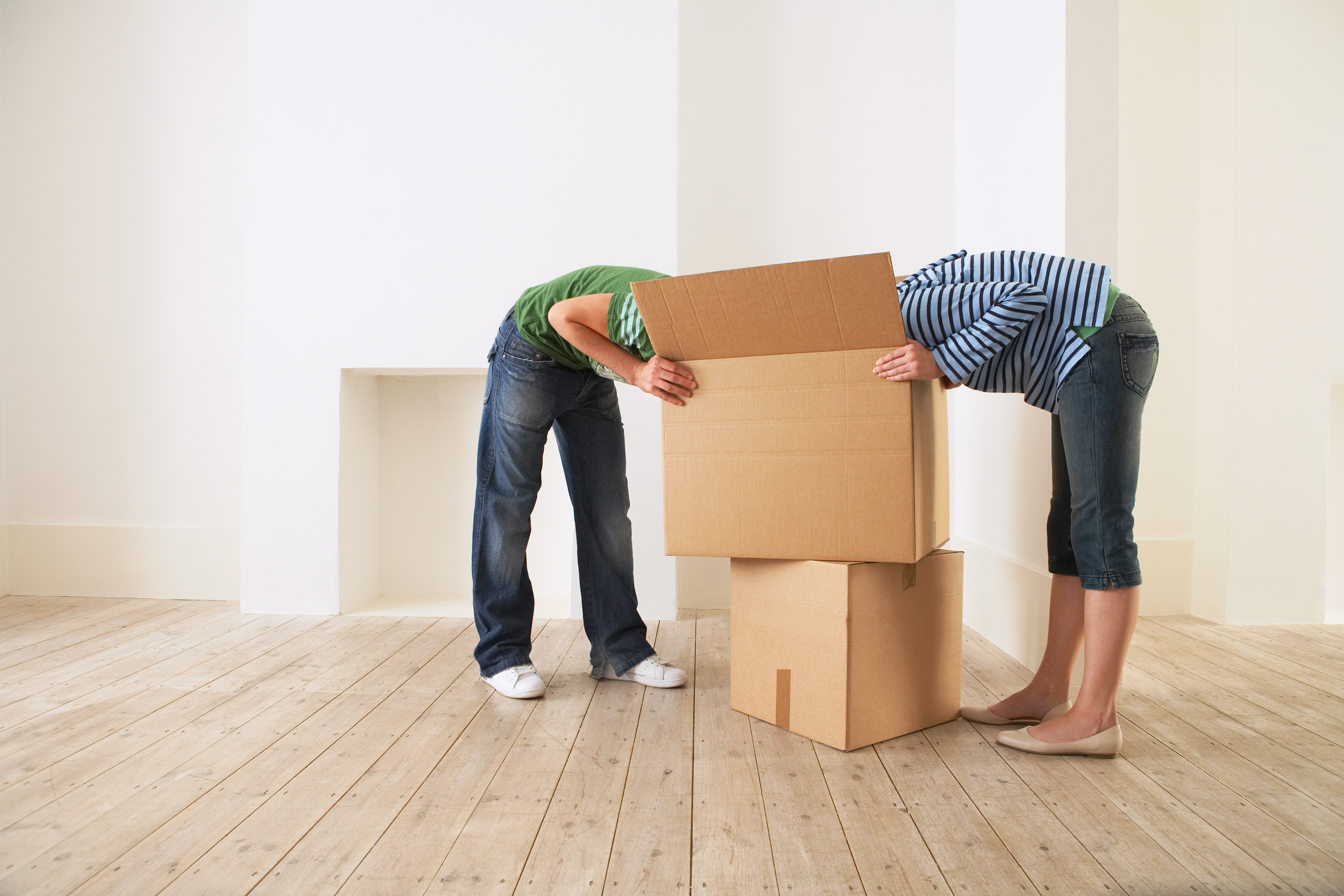Many first time homebuyers in the excitement of getting their first home may not be aware of some common expenses they can expect with the purchase of a home and could neglect to budget for that. Some of those expenses like closing costs are an absolute requirement that must be paid otherwise the homebuyer will not be able to close on their home and move into it. Other expenses may vary but do need to be considered by the homebuyer so that they have the money ready to do certain things when the time comes.
CLOSING COSTS
One major expense of purchasing a home, and that is usually due right up front upon the final transfer of a home, are closing costs. Closing costs represent the fees associated with getting a mortgage and registering the new house in the buyer’s name. If the buyer is using a low down payment or zero down payment mortgage they may be in for a surprise if they don’t have enough money to pay for closing costs. Even with a zero down payment mortgage (VA, USDA) the homebuyer may be required to bring a check to the closing table in order to pay for the closing costs. If the buyer cannot pay for the closing costs they cannot complete the sale for the home.
The money used to pay for closing costs also generally must come from income sources of the homebuyer and cannot come from credit cards or other forms of loans. Gifts of money from parents or other relatives can be used to pay closing costs but the lender will generally want to trace the source of the funds well before closing date so it is always wise to mention the gift money to your lender well before the date of closing. Once the lender has verified the source of gift money the homebuyer can use that money to pay for closing costs and put any remainder towards down payment if they wish.
Homebuyers can ask for the seller to pay for closing costs so that the buyer has to pay nothing out of pocket. Through this process the homebuyer during their offer asks the seller to pay a certain amount towards closing costs. Generally sellers do not have to agree to pay closing costs and sometimes may raise the purchase price of the home on the offer in order to cover the closing costs. Through this method the homebuyers are essentially financing the closing costs into their mortgage.
MOVING EXPENSES
Unless you live a life where you have low to no furnishings there will be moving expenses associated with going into your new home. The costs for moving can be cheaper if you are able to rent a truck and ask a few friends to help you move your household belongings to your new home. The cost of a rental truck, boxes, and other moving and packing supplies should not run you that much.
On the other hand if you have numerous large pieces of furniture, appliances and boxes to move it may make more sense to hire professional movers who will help you disassemble your furniture and move it to your new home placing it exactly where it needs to go and assembling everything they disassembled. Hiring professional movers will cost more and it is wise to hire reputable movers who are insured so you don’t get scammed while moving between locations. Movers cannot only help you move your belongings they can also help you pack and unpack if you need them to and pay for their full service move.
to your new home placing it exactly where it needs to go and assembling everything they disassembled. Hiring professional movers will cost more and it is wise to hire reputable movers who are insured so you don’t get scammed while moving between locations. Movers cannot only help you move your belongings they can also help you pack and unpack if you need them to and pay for their full service move.
PROPERTY TAXES
Depending on how your mortgage is setup, whether insurance and taxes are escrowed or paid directly by you, property taxes paid to the government will be owed by you. Most of the time taxes are prorated so the seller will pay for the portion of taxes for the time they were still living in the property and the buyer will be responsible for the part during which they take ownership of the home and going forward. Sometimes part of the closing costs and money brought to closing by the homebuyer includes some of the pro-rated tax amounts or includes amounts that will be put into an escrow account which is described below.
If you are paying taxes directly and there is no escrow account setup with the mortgage then the property tax bill will sent directly to you for payment. Depending on the state or county you live in your taxes may be due in twice a year installments or some other time frame. Your local property taxes will be based on the value of the home you live in and can increase or decrease based on what the local government is needing to provide services. Prior to even making an offer on a house homebuyers should be inquiring about how much the annual property taxes are.
ESCROW ACCOUNT
An escrow account is an account setup with the mortgage company where by extra monthly payments are collected from the homeowner and used to pay the annual insurance bill as well as property tax payments. The escrow account can catch buyers by surprise since they are usually quoted a mortgage payment based on mortgage principal and interest payments and the monthly escrow amounts collected will vary based on the amount of insurance needed for the home as well as the property taxes which are based on the value of a home. Homebuyers expecting to pay a certain amount per month to the mortgage company maybe be quite surprised to find their payment is a couple of hundred (or more) dollars more per month in order to fund the escrow.
Especially as home prices rise compared to the prior value of the home the escrow collection can jump even further if the local tax authorities raise the value of the home upon which the tax is based upon. In order to make sure both the tax payment and the insurance premium for the year are able to be fully paid with the money in the escrow account the mortgage company can either increase the monthly payment requirement or ask for a one time up-front payment. Generally the amount of times the escrow payment can change is limited to one change per year to prevent the homeowner from having an uncertain payment amount with their mortgage payment.
UTILITIES
Depending if you were paying utilities before buying your new home (living at home or living in a dorm) some or all utilities will need to be paid for on a monthly basis. Electric, water, internet, phone bills, trash and maybe more all become the responsibility of the homeowner. Some utility companies will require a deposit for those with less than established credit records in order to start service in your name.  Depending on your location some services like water and trash may already be included in your property tax bill and therefore you should not be getting a separate bill for those.
Depending on your location some services like water and trash may already be included in your property tax bill and therefore you should not be getting a separate bill for those.
FURNISHINGS
If you have grown in square footage from living with parents or living in an apartment/dorm the added space in a home means added furniture. Especially if you will be having friends over that means getting sofas, bedding and more to fill your home. You can save money by purchasing dual use furniture such as sofa beds, wall beds, futons and more. Certain additional appliances may be needed as well such as washer/dryer units, microwaves, and other small household appliances (vacuums, toasters, etc) to help around the house.
LANDSCAPING
Unless you are living in a condo complex that provides for landscaping services you will also be responsible for maintaining your yard. Yard maintenance will require a lawn mower and other lawn tools to make sure the outside looks good. You could also contract out the landscape maintenance to a service for a regular monthly fee.
BOTTOM LINE
Buying a new home can be fun and exciting, but it can also lead to budget shock if you are not prepared for the new expenses you will be expected to pay. By understanding the expenses you will pay as a new homeowner you can better plan your budget ahead to time to make sure everything is done properly and on time as needed.
ADDITIONAL RESOURCES
- Tips For Avoiding A Delayed Closing by Petra Norris
- Common Closing Costs When Buying A Home by John Cunningham
- Tips For Saving Up For Homeownership Costs by Michelle Gibson
- Hidden Costs Of Home Ownership at CBNC.com
About the author: The above article “Common Expenses New Homeowners Need To Plan For After Buying A Home” was provided by Luxury Real Estate Specialist Paul Sian. Paul can be reached at paul@CinciNKYRealEstate.com or by phone at 513-560-8002. If you’re thinking of selling or buying your investment or commercial business property I would love to share my marketing knowledge and expertise to help you. Contact me today!
I work in the following Greater Cincinnati, OH and Northern KY areas: Alexandria, Amberly, Amelia, Anderson Township, Cincinnati, Batavia, Blue Ash, Covington, Edgewood, Florence, Fort Mitchell, Fort Thomas, Hebron, Hyde Park, Indian Hill, Kenwood, Madeira, Mariemont, Milford, Montgomery, Mt. Washington, Newport, Newtown, Norwood, Taylor Mill, Terrace Park, Union Township, and Villa Hills.

Comments:
Post Your Comment: